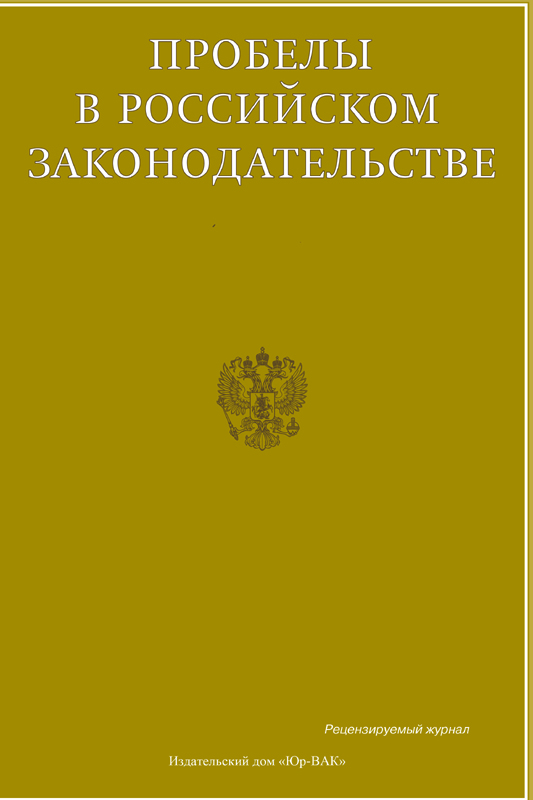Current Problems in Countering the Use of Social Networks to Spread Extremist and Terrorist Ideology
- Authors: Kamergoev B.M.1
-
Affiliations:
- North Caucasus Institute for Advanced Studies (branch) of the Krasnodar University of the Ministry of Internal Affairs of Russia
- Issue: Vol 15, No 4 (2022)
- Pages: 198-202
- Section: Articles
- URL: https://journals.eco-vector.com/2072-3164/article/view/531674
- ID: 531674
Cite item
Abstract
In this article we discussed the problem of the spread of terrorist and extremist ideology in social networks. An attempt was made to demonstrate how urgent this problem is, and it is associated with the increased popularity of social networks. Every person registered and using social networks is in danger and risks becoming a victim of recruiters of terrorist organizations. The objectives of the study are to analyze the reasons conducive to the spread of extremism and terrorism in social networks. It is undeniable that the availability and anonymity of the global information space benefits both the emissaries of extremism and terrorism and the consumers of the content broadcast by them. In recent years law enforcement agencies have been continuously monitoring social networks for the presence of extremist and terrorist slogans and doctrines. But the flow of information in social networks is unimaginably huge and information that appeared on one page is transmitted (reposted) with great speed to other users and communities, and thus it gets to hundreds of thousands of people. And even finding the source does not guarantee that the problem will be completely solved. Conclusions: Social networks are developing, extremist and terrorist organizations are also improving, they are adapting and learning to bypass all the existing rules of social networks and are a huge threat to the state and society. That is why the fight against them must be much tougher. The problem of extremism and terrorism spreading in our country as well as in the world is not new, but the spreading in social networks, where the coverage of people to whom this information will reach, is increasing day by day, and the question is not about a single region or country, the whole world is under threat. Therefore, to solve the problem of spread of extremist and terrorist ideology the work of law enforcement agencies is not enough. It is necessary to combine efforts with professionals in the field of programming, as well as legislative bodies to effectively counteract these phenomena.
Keywords
Full Text
About the authors
Beslan Mukhamedovich Kamergoev
North Caucasus Institute for Advanced Studies (branch) of the Krasnodar University of the Ministry of Internal Affairs of Russia
Email: kamergoev22@gmail.com
Senior Police Lieutenant, senior lecturer of the Department of Internal Affairs Activities in Special Conditions Nalchik, Russia
References
- Federal law "About counteraction to extremist activity" from 25.07.2002 № 114-FZ [Electronic resource] // Mode of access: http://www.consultant.ru/document/cons_doc_LAW_37867/ (date of reference 18.04.2022).
- Decree of the President of RF dated March 23, 1995, № 310 "On measures to ensure concerted actions of state authorities in combating manifestations of fascism and other forms of political extremism in the Russian Federation". [Electronic resource] // Mode of access: https://base.garant.ru/10102720/ (circulation date 20.04.2022).
- Abazov A.B. Preventive measures to counteract radicalism and extremism in the youth environment // Journal of Applied Research. 2021. V. 2. № 5. pp. 168-171.
- Abidov R.R. Globalization of information space as a resource base of cyberterrorism // Gaps in Russian legislation. 2021. V. 14. № 4. pp. 116-119.
- Gedgafov M.M. Extremism and terrorism as a threat to modern society // Journal of Applied Research. 2022. V. 1. № 2. pp. 69-72.
- Zhurtov A.B., Ordokov M.Kh. Extremism: concept, socio-economic, political and historical reasons of the phenomenon, trends of its development // Eurasian Law Journal. 2020. № 4 (143). pp. 398-399.
- Kamergoev B.M. Current Issues of Counteraction to the Spread of Extremism Ideology in the Global Information Space // Gaps in Russian Legislation. 2021. V. 14. № 5. pp С. 69-72.
- Magomedov M.N. Combating Extremism and Terrorism: New Challenges and Threats // Journal of Applied Research. 2022. V. 1. № 2. pp. 65-68.
- Tarchokov B.A., Tarchokova M.A. On the factors determining modern extremism in conditions of globalization // Education and law. 2021. № 6. pp. 347-351.
- Tkhazeplov T.M. Internet as one of the ways to involve persons in extremist activity // Journal of Applied Research. 2022. V. 1. № 3. pp. 81-84.
Supplementary files









